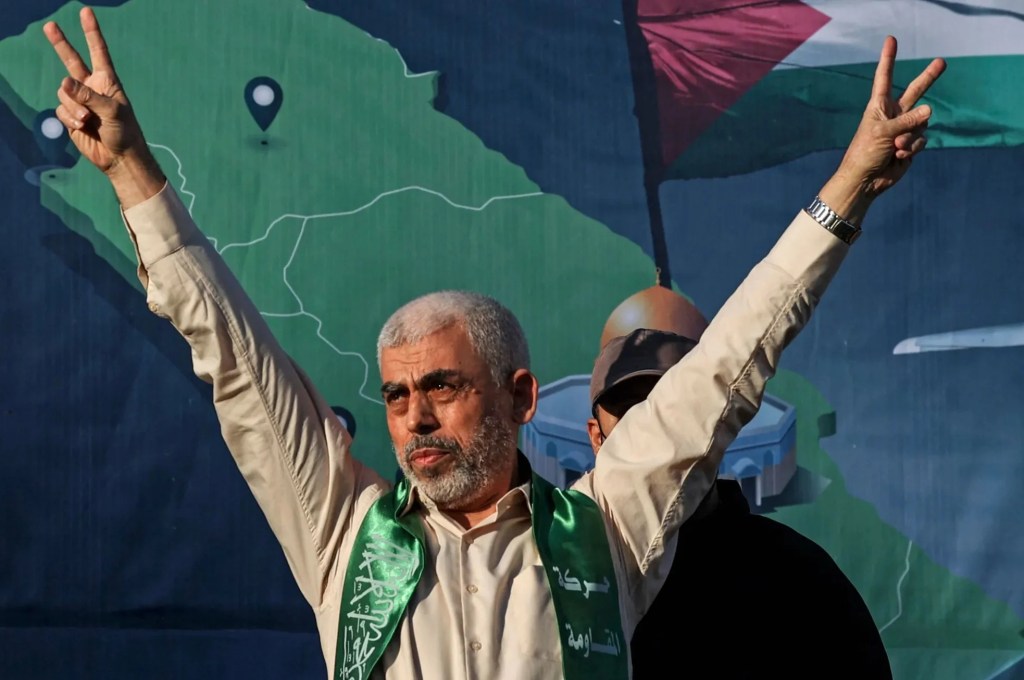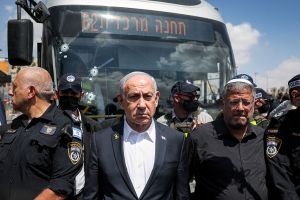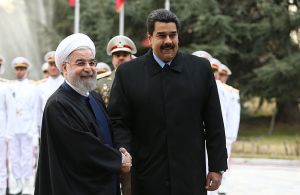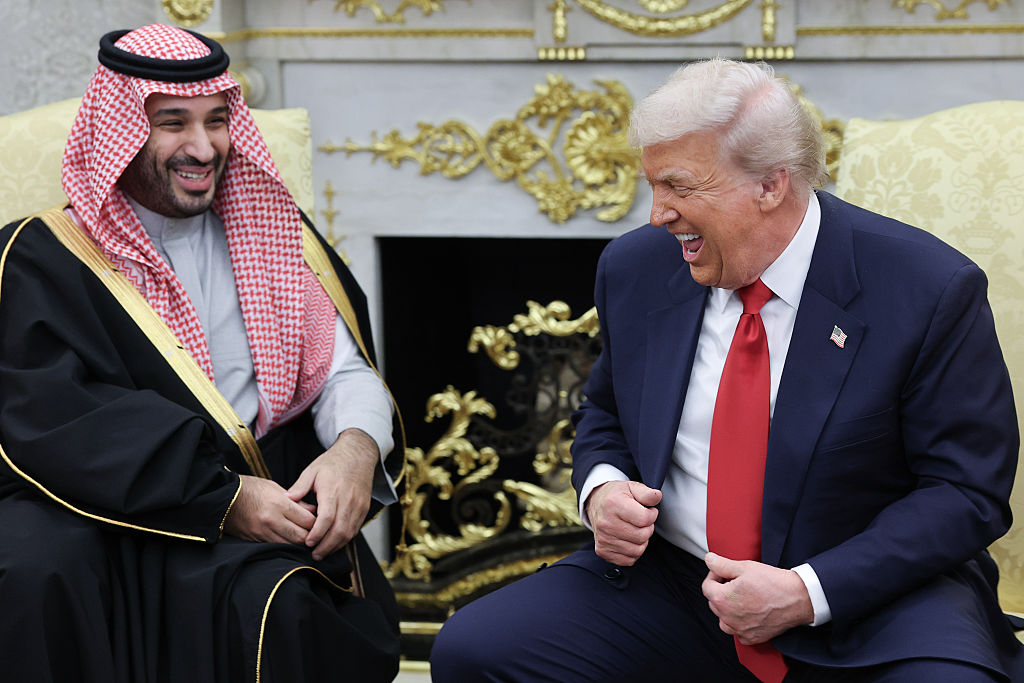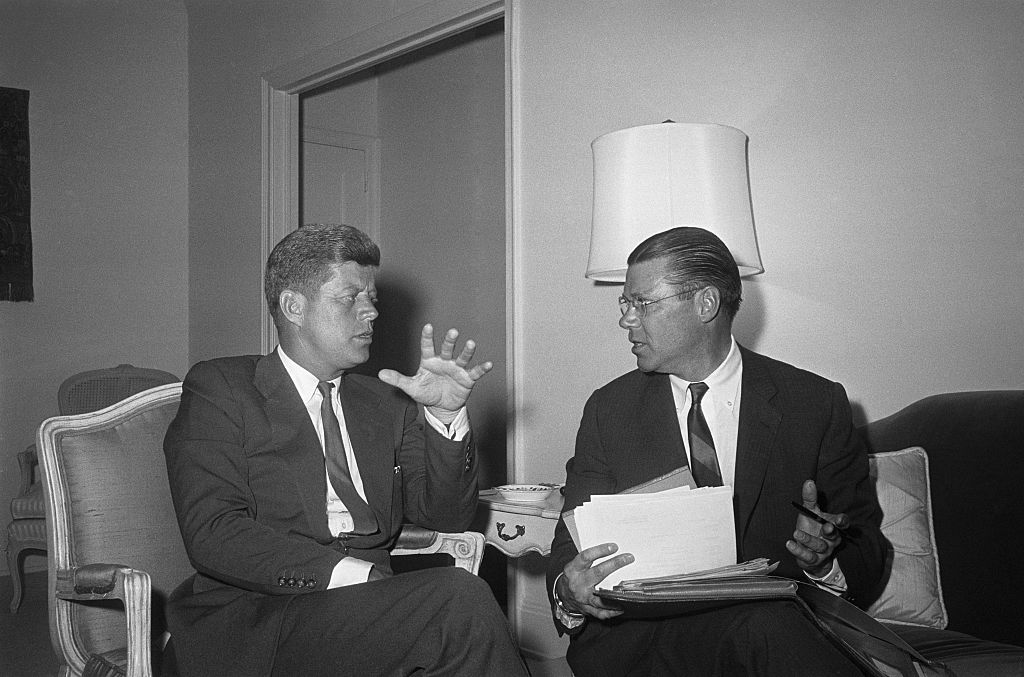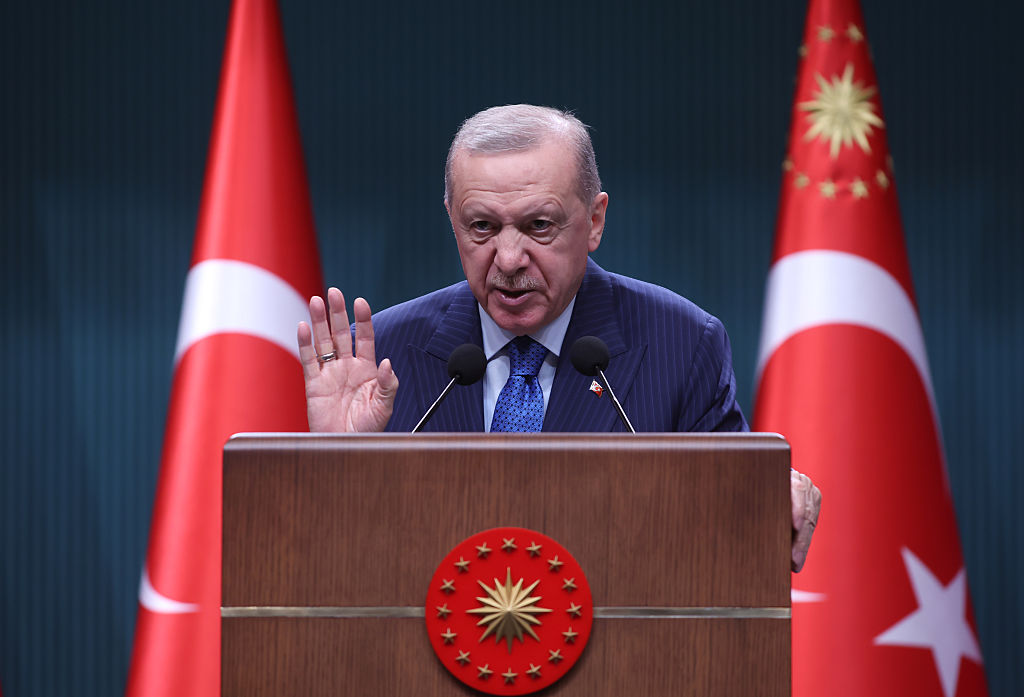It took more than a year of waging war, but Israel has finally succeeded in killing its top target in Gaza: Yahya Sinwar. Alongside Mohammad Deif, who is thought to have been killed by an Israeli strike in July, Sinwar was the man most responsible for organizing the horrific attacks of October 7. At the time of those attacks, Sinwar was the head of Hamas’s Gaza branch, but since August he had been promoted to the group’s overall leader, replacing the Qatar-based Ismayil Haniyah who was assassinated on July 31 while on a trip to Tehran. The group must now pick a new leader.
Having led Hamas’s Gaza branch since 2017, Sinwar solidified the group’s ties to the Iranian regime and integrated it in the so-called Axis of Resistance, a Tehran-led umbrella of anti-Israel militias in the region. He helped overcome a major rift between Tehran and Hamas which had developed earlier in the decade, most intensely during the Syrian Civil War, in which the Palestinian group (in line with its Sunni Islamist heritage) backed the Sunni-majority Syrian rebels while Iran staunchly supported the government of Bashar Assad.
Hamas will not be allowed to rule again in Gaza
With Sinwar gone, the futures of Hamas and the terrible ongoing war are now in question.
Hamas’s next leader could emerge from the group’s military leaders who remain in Gaza — chiefly Mohammad Sinwar, Yahya’s younger brother — or from those operating in its exiled political wings in Qatar, Turkey or Lebanon.
Hamas’s internal dynamics have often been neglected by international observers. While there are factions of the group that are wedded to the Tehran-backed militancy, we mustn’t forget that it started life as the Palestinian branch of the Muslim Brotherhood, an Egypt-based Sunni Islamist movement which often eschews violent means. Parties of the Muslim Brotherhood family often prioritize electoral methods and have served in governments and parliaments in conservative pro-western monarchies such as Jordan and Morocco. A party with roots in the Muslim Brotherhood even served in the Israeli government in 2021-22. The group’s base is the educated middle-class and well-to-do merchants.
Muslim Brotherhood parties mostly look not to Tehran’s revolutionary anti-western regime for strength but to Ankara, where President Recep Tayyip Erdoğan has ruled since 2002. Erdoğan has given many fiery anti-Israel speeches in the past year, but Turkey has never cut diplomatic ties with the Jewish state. To the country, Turkish and Israeli intelligence have often worked closely with each other, especially in attempting to thwart Iranian attacks on Israelis. As a member of NATO, Turkey remains integrated into the western security architecture, and Turkey’s closest ally, Azerbaijan, is also a close ally of Israel. In short, despite Turkey’s staunch support for the Palestinians, its relationship to the West and Israel is nothing like Tehran’s.
If Hamas’s leadership was to pass from pro-Tehran to pro-Ankara elements, this could augur a new future for the group and help its re-integration into Palestinian political life. Hamas will not be allowed to rule again in Gaza, but some of its remaining elements could decide to pick a more political, less militant, path. One potential candidate that could bring about change is Khaled Mashal, Hamas’s leader from 1996 to 2017. While his reign did include the rift with Tehran over Syria, Mashal was also comfortable working closely with the Iranian regime before that. Earlier this month, he met Iranian president Masoud Pezeshkian on a visit to Doha, and went on to praise Iran’s missile attacks on Israel.
Nevertheless, Mashal is known to be interested in moving Hamas closer to Turkey and to Arab countries. In 2015, he visited the holy city of Mecca and met with the king of Saudi Arabia, Iran’s arch rival. His fall from power in 2017 was seen as a major gain to Tehran and his return to power could also be seen as a major loss. It remains to be seen whether he has enough political heft and support from Arab countries to lead Hamas.
To the war more widely. The United States, Israel’s main ally, is urging Israel to take yesterday’s win and wind down the conflict in Gaza. In President Biden’s statement celebrating the killing of Sinwar, he urged Israel to plan for the “day after,” with Hamas no longer in power but “a political settlement that provides for a better future for Israelis and Palestinians alike.” He called for “ending this war once and for all, which has caused so much devastation to innocent people.” Vice-President Kamala Harris, the Democratic nominee in the presidential election that is only a few weeks away, issued a similar call, asking for a deal that could release the remaining Israeli hostages and bring an end to the “suffering in Gaza.”
In Benjamin Netanyahu’s statement announcing the death of Sinwar, he said that it was not the end of the war, but the “beginning of the end.” What does that mean? With some deft maneuvering, Israel could now secure the release of hostages and hand Gaza back to an Arab and Palestinian administration (backed by countries such as Egypt and the United Arab Emirates that have good ties with Israel). As for the other fronts of the war, Israel could probably secure a favorable ceasefire with Hezbollah, which has been decimated by ferocious attacks in the past few weeks, and with Iran, which is awaiting Israeli retaliation following its missile attack earlier this month. Will Bibi take this moment to pursue peace? The prime minister and his far-right coalition may just continue hitting Israel’s adversaries without an end goal.
Watch more on SpectatorTV:
This article was originally published on The Spectator’s UK website.



